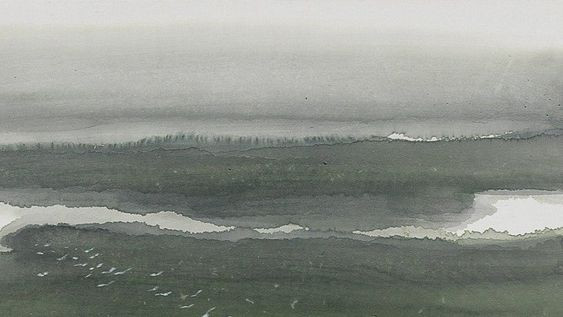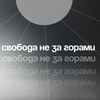LGBTQ+ in the North Caucasus: changes

Any next text could be the last one in the conversation about LGBTQ+ in Russia. Two weeks ago a bill was submitted to the Duma to ban LGBT+ “propaganda”. Anyone who risks distributing content on this topic faces fines, blocking and even criminal cases. The wording of the bill is vague — convenient to easily “adjust” anyone. After the adoption of the bill, the conversation about LGBTQ+ in Russia may end. At all. In the podcast “Freedom Is (Not) Away” we discussed how the new bill could work and be enforced.
We talked about the LGBTQ+ community in the North Caucasus, how it survived in the region before and what has changed by now.
Russian version of this text/Версия текста на русском языке
*****
Five years have passed since spring 2017, when Novaya Gazeta reported on the mass persecution of gays in Chechnya. How has the life of the queer community changed in the North Caucasus? How did it hide, how do people live who cannot leave their country and are forced to live in hiding?
Our heroes:
● Anton, administrator of queer publics, in which LGBTQ+ community members in the North Caucasus meet
● Maxim Lapunov, the first person to speak openly about the persecution of gays in Chechnya and the central character of the film “Welcome to Chechnya”.
Dating in Queer Communities: Anonymity, Fear, Danger
— How was the life of queer communities organized before? How has she changed now? Is it scarier now? How is online communication evolving?
Anton: Now there are two most famous groups in the Caucasus — in these groups, of course, there are Chechens, but there are very few of them. Every time the communities warn these guys not to date anyone. After all, you are primarily responsible not only for yourself, but also for your family, if you are caught, you endanger them. Families have to pay huge sums of money to get their kids out of prison. They will catch you not because you are gay, but because they need money. Now everyone is a little scarier than before.
— How queer publics work?
Anton: There is a VKontakte group, for example, “What the mountains are silent about.” Stories are posted there and there are subscribers. You choose a region — for example, Chechnya. Usually the post is like this: my name is, I am a Chechen, I would like to meet… Then you write to him, analyze the character. You do not trust him — no photos. This is how dating happens.
— Are you registering under your real name?
Anton: No, of course not. No, no, no, of course! (laughs). And no one registers under their real names. There are, of course, crazy ones — they are ready to send their photos in five minutes. And there are others — they are honest, they really want love or relationships, acquaintances or walks. If you are an adequate person, you will wait a long time.

2015: how it was?
— Maxim, a few years ago you came to Chechnya — did you know about the persecution of gays at that time? When did you first encounter this?
Maxim: No, of course I didn’t. I arrived there in 2015 — it was very calm. Pretty safe, all the gays were talking on apps. I also talked a lot. Everything was secretive, but we met in cafes, not in secret places. There was never any suspicion that there might be a raid. There were no problems at all. Significantly, I was not familiar with the local hide-and-seek games.
— Anton, can you remember the same year, you were also in Chechnya then?
Anton: Regarding the set-ups: these were rather isolated cases, they were not particularly advertised. But as for meetings, people make contact for a very long time. Since Maxim is not a local, he really cannot understand the so-called “games of hide and seek”. If we wanted some kind of intimacy, we went up to the roofs, because the roofs of the houses are open. But it took a very, very long time to make contact.
Maxim: Yes, they really take a long time to make contact. I“ve heard a lot about scams, but I haven”t come across them myself. It took a long time to persuade a person to meet, just sit without any obligations, drink coffee and take a walk. It could take a month or more.

Torture and persecution. Now.
— Anton, did you understand that becoming a group admin is risky?
Anton: Yes, of course. If I or other administrators are found out, they will be punished in a rude manner. They can kill me.
— Maxim personally experienced this. How did your arrest happen?
Maksim: The day before, my friend was detained — he was absent for a week and after his return, the family forbade him to communicate with me. I didn’t understand what was happening. He wanted to warn me about something, but he just stood by me and left. I was scared — he was crippled and scared too.
In the evening after work on the street, a stranger approached me. I took it by the arm, a second one immediately came up — they grabbed me, and I could not escape. I was dragged to the fence and thrown over it. They immediately pushed me into the car. Everything was very fast — I shouted and called for help, but the men took out weapons and explained in Chechen that they were detaining me on suspicion of murder.
Just then, the guards came up — the military. They took away my passport, wrote down the data and took me into the unknown. They put a bag over his head and tied it with tape around his throat. Everything was very fast, you don’t have time to understand anything. Now I already know that they took me then to the Criminal Investigation Department.
They took me straight to the main. And they accused me of being gay and people like me do not belong here. They already took the phone, unlocked it and demanded that I give up all the gays that I know. It’s good that I mark “my own” with a special cipher — everything was hidden, there was nothing special to “dig into”.
And then they took me to the basement. Beatings and tortures began: “come on, tell us who your friends are, we need Chechens, you are such a scum, you spoil our children, brothers and husbands,” — they said.
It was a very hard two weeks of daily bullying. You have an iron door in your cell — with a roar they first beat on it to frighten, to put you in a state of shock. Then they come in, start beating me in the face, in the legs, and demand a story. I was like a monkey for them — since I am Russian, they understood that they could only not leave bruises. This went on until my family started looking for me.
At gunpoint, I was forced to write a video message — who am I, that I am gay, that I communicated with local gays and spoiled their nation. I signed a statement in which I pledged not to talk about anything.
If I tell about it, compromising evidence has been collected on me, they can find me at any moment. They have great connections. If you do something wrong, you will be lost forever, you will simply be killed. I understood this very well. Two days later, I learned that two guys who were with me in that basement had been killed.
— There is a feeling that now the noise around the prisons has “calmed down”. Is it true?
Anton: After 2017 people became more secretive. Queer communities repeatedly warn that dating is dangerous. But that doesn’t help either. Often they catch young guys who do not want to listen to anyone. But adults understand that for the sake of themselves and their families it is better to stay at home. For example, two days ago a Chechen guy was caught — I know that he was framed and forced to frame others.
***
We publish a transcript of the podcast fragment, and here you can listen full conversation.
